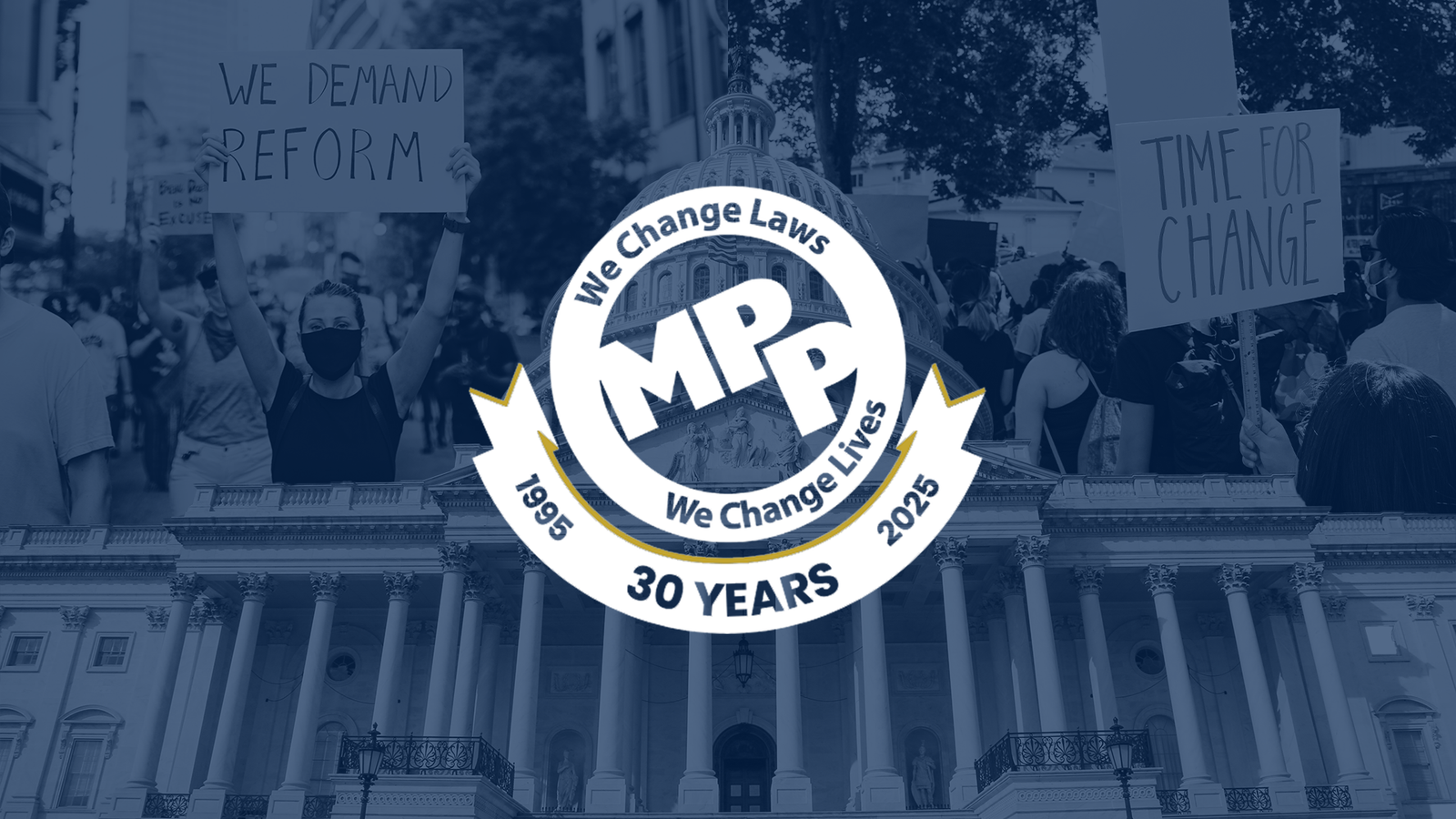
For more than three decades, the Marijuana Policy Project (MPP) has been one of the driving forces behind cannabis reform in the United States. From landmark state victories to consistent pressure at the federal level, MPP has helped shape the path toward legalization and safe access. Today, as debates move beyond whether cannabis should be legal to what a rational and sustainable cannabis system looks like, MPP continues to lead the way.
We spoke with Adam Smith, MPP’s new Executive Director, who has spent decades in drug policy reform. Through his voice, it’s clear that MPP’s work remains as vital as ever: advancing policies rooted in public health, public safety, and public access, and ensuring that the movement stays focused on the people who use the plant.
Why MPP’s Mission Matters
The progress of legalization has transformed the cannabis conversation, but Smith is quick to point out that the fight is not over. “There are people in states all over the country who are still being arrested for possession or use of these products, and the race and class disparities still endure,” he said. “There are medical patients that still don’t have access. There are 15 medical states where people are not allowed to grow their own medicine. If you grow your own, you’re likely to lose your house or your kids. That part of the fight is not over.”
For MPP, the goal has always been bigger than legalization alone. It’s about ensuring safe supply, meaningful access, and the end of prohibition in all forms. As Smith puts it: “Public health, public safety, and public access; adults should be able to access this, but they should also know it’s a clean supply.”
Challenges in Today’s Legal Market
One of the reasons MPP’s advocacy is so crucial today is the fragile state of the regulated cannabis market. Far from being the cash-rich industry it’s often portrayed as, many businesses struggle to survive under the weight of excessive taxation and restrictive state-by-state frameworks.
“There’s this idea that the cannabis industry is just overflowing with money and everyone’s getting wealthy. That is not true,” Smith explained. “Regulated cannabis state by state has been set up in a way that is entirely economically nonviable. Cannabis companies are paying taxes on their gross as opposed to everyone else paying taxes on their net… licensing fees are outrageous… it makes business almost impossible.”
This economic strain keeps the illicit market alive. “When we legalize, all we do is set up a competing market to the illicit market. The illicit market doesn’t go away,” Smith said. “The only way you can take the profits out of the illicit market is consumer choice—consumers choosing in mass to buy a safer regulated product. And the only way they will do that is if it’s cost competitive, if it’s quality competitive, if they have a strong belief in the safety of the product, and if it’s accessible easily.”
Defining a True End to Prohibition
For Smith and MPP, cannabis reform isn’t complete until prohibition is truly over. That means going beyond legalization frameworks that limit personal freedom or restrict access. “If you haven’t legalized homegrow, you haven’t ended cannabis prohibition. You’ve simply created a corporate exemption. If I’m not free to grow and use the plant, then you have not ended prohibition.”
This distinction highlights the importance of MPP’s role as a movement organization, not just an industry ally. While the cannabis industry is essential for building sustainable access, MPP continues to ensure that the rights of consumers and patients remain at the center of reform.
From Legalization to Lasting Change
With more than half of all Americans now living in states with legal adult-use cannabis, the “legalization movement” must continue to evolve. No adult, anywhere, should ever be arrested, or detained, or face civil or criminal penalty, or the diminution of any right for growing, possessing, or using cannabinoids in any form. And MPP will, of course, continue that fight to the end.
But legalization isn’t enough, and the illicit market will continue to thrive unless regulated markets can offer a reliably clean and varied supply of accurately labeled, high quality cannabis products at a competitive price through retail channels no less convenient than for other age-gated products with similar risk profiles.
The future, says Smith, is about fighting for comprehensive cannabinoid policies grounded in public health, public safety, and public access.
What That Future Requires
To make that vision real, MPP is pushing for rational regulations and fair taxation to keep legal products competitive with the illicit market, a clean supply backed by real testing and accurate labeling, an end to marketing synthetics for human use, and the legalization and regulation of hemp-derived cannabinoids. Access to cannabis should be no more restrictive than other age-gated products with similar risk profiles–for example, buying low-dose THC beverages wherever beer is sold, or purchasing edibles under rules no stricter than tobacco..
The various parts of the cannabinoid industry have their legitimate interests, says Smith, and many of them align with ours, but they also have biases. Governments have both legitimate interests and biases as well. But the movement needs to stand up for adults and patients everywhere who use or would like to use cannabis. Industry and government each have ideas about the system they’d like us to have. But grounded in public health, public safety, and public access, it’s the movement’s job to articulate and fight for the cannabis policies that we the people deserve.
How You Can Support Reform
The fight for cannabis reform is far from over. It’s not just about legalization, it’s about creating a system that prioritizes health, safety, and fair access for everyone who uses the plant. TYSON 2.0 is committed to supporting the organizations on the frontlines of that mission, and MPP continues to be one of the most important voices in the movement.
We encourage our community to learn more about MPP’s work and how you can help support their mission at www.mpp.org. Together, we can build a stronger, safer, and more equitable future for cannabis.


